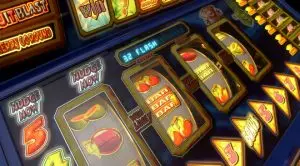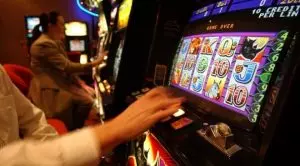 Councillors from Timaru District have voted to retain the existing limit on the number of gaming machines for new establishments at seven, as part of its efforts to keep a lower limit on the terminals than the one permitted by the Gambling Act.
Councillors from Timaru District have voted to retain the existing limit on the number of gaming machines for new establishments at seven, as part of its efforts to keep a lower limit on the terminals than the one permitted by the Gambling Act.
At the council meeting held yesterday, Timaru District Councillors heard submissions on the draft Gambling Venues policy that were made by several organisations, including the Problem Gambling Foundation, the Gaming Machine Association, the Hospitality New Zealand’s South Canterbury branch, Pub Charity and Trust Aoraki.
As heard by the Council, all of the aforementioned organisations, apart from the Problem Gambling Foundation, backed the maximum number of machines for new venues to be set at nine, as permitted by the Gambling Act. The councillors, however, made the unanimous decision to keep the maximum number of machines at seven, as had been proposed in the consultation document. The existing maximum limit was adopted in 2007. For the time being, there are 14 venues offering a total of 165 electronic gaming machines in the Timaru District.
The so-called sinking lid policy that Community and Public Health proposed along with the Problem Gambling Foundation, has been opposed by some proponents of gambling machines in the district and to the right of operators to move the terminals to another location if they want to.
Adoption of a Relocation Policy to Be Considered by the Council
 The yesterday’s hearing was chaired by Deputy Mayor Steve Wills because mayor Nigel Bowen self-excluded from the debate because of a possible conflict of interest. He is currently involved with Hospitality New Zealand that had made one of the submissions that were considered at the hearing.
The yesterday’s hearing was chaired by Deputy Mayor Steve Wills because mayor Nigel Bowen self-excluded from the debate because of a possible conflict of interest. He is currently involved with Hospitality New Zealand that had made one of the submissions that were considered at the hearing.
Another councillor, Stu Piddington, also excused himself due to potential conflict of interest. He has been involved with Tennis South Canterbury, an organisation that gets funding from gambling machine revenue every now and then.
The rest of the councillors unanimously decided that keeping the existing maximum limit at seven would be the best thing to do, as it would help the authorities tackle possible gambling-related harm. Apart from that, the Timaru District Council agreed to consider the adoption of a relocation policy, under which local venues would be able to take their gaming terminals with them in case they choose to move to another site.
As revealed by Kristy Phillips, president of Hospitality new Zealand’s the South Canterbury branch, less than 0.1% of the population of the region could be categorised as gambling addicts. Ms Phillips also noted that the gambling machine spending has been rising despite the reduction in the terminal’s number. According to Phillips, online gambling, much of which still remains unregulated poses a greater risk than the machines, as many of the gambling operations on the Internet simply do not pay any taxes that are brought back to the community.
- Author


